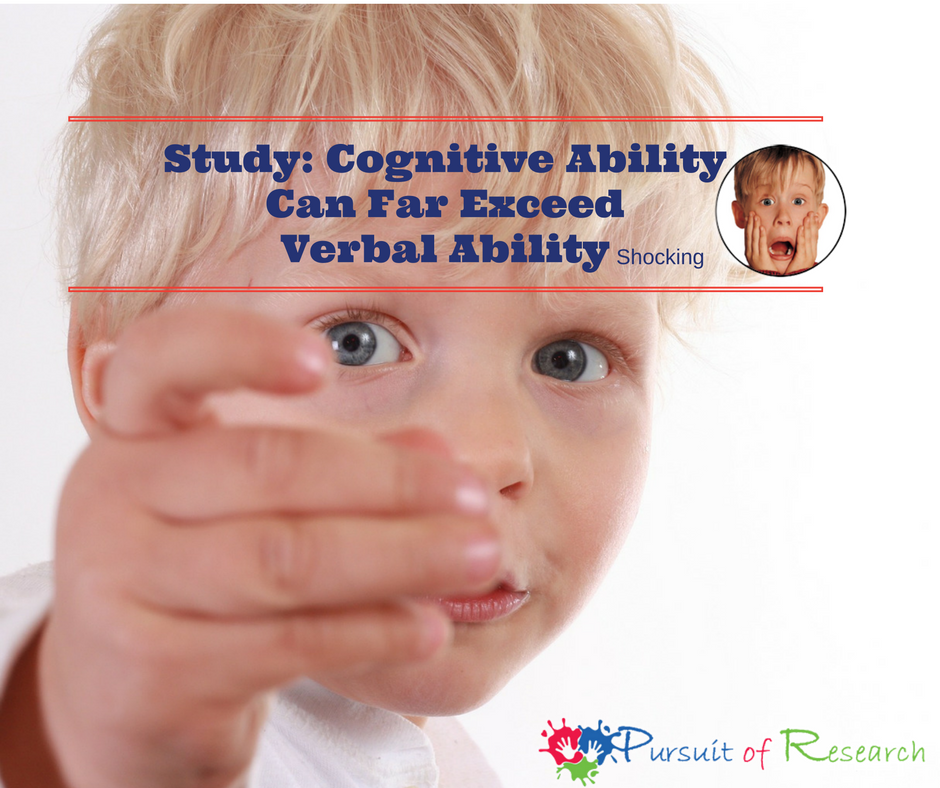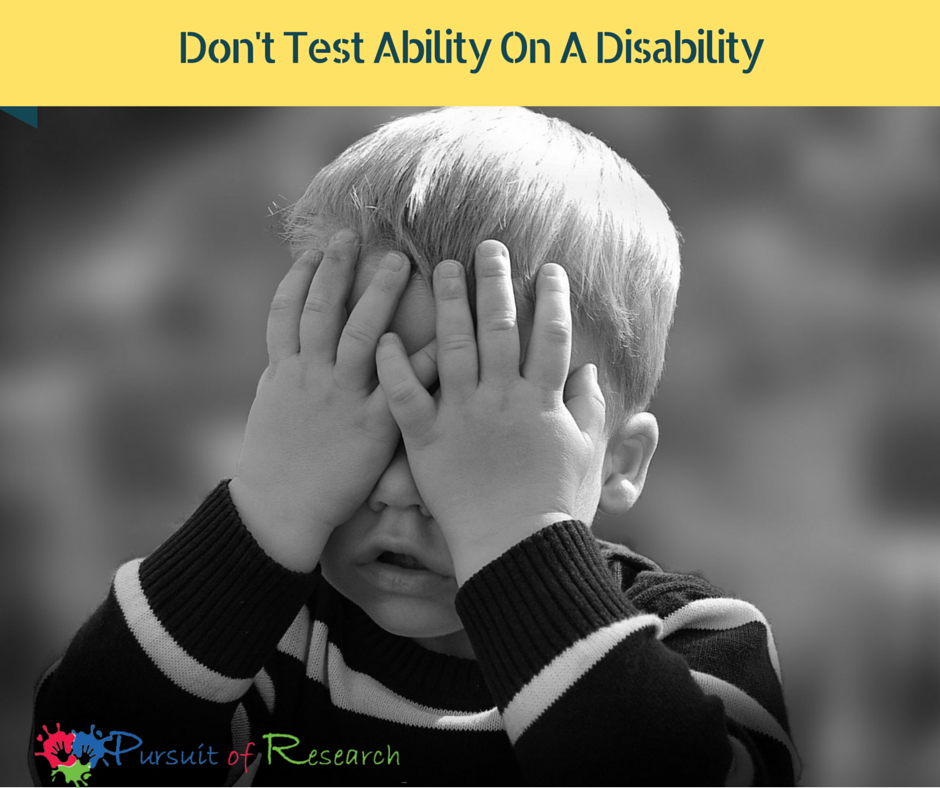Regardless of the method used to classify children as minimally verbal, 43 to 52 percent of minimally verbal children have significantly higher nonverbal than verbal intelligence scores.
 Great news for all of us that care for children with a communication impairment even though it’s something we already knew as parents. Something I’ve been saying for close to 2 decades now is that you can’t judge a child’s cognitive ability by their verbal ability. But at least now it’s official. A new study of “minimally verbal” children has found that their cognitive skills far exceed their verbal abilities.
Great news for all of us that care for children with a communication impairment even though it’s something we already knew as parents. Something I’ve been saying for close to 2 decades now is that you can’t judge a child’s cognitive ability by their verbal ability. But at least now it’s official. A new study of “minimally verbal” children has found that their cognitive skills far exceed their verbal abilities.
In this study they used the term minimally verbal. I personally use the term essentially nonverbal to describe a child that only us, the parents, would understand meaning if they got lost they wouldn’t be able to share who they are to a stranger.
For research of course they had to have something a bit more scientific. But they had a problem as out of the 5 standardized tests they used they got various results. (another thing most of us as parents already knew)
Two of these tests
- the Autism Diagnostic Observation Schedule (ADOS)
- the Autism Diagnostic Interview-Revised
classify children as minimally verbal if they use only single words or simple phrases such as ‘want juice.’
Three tests use various criteria to determine a child is minimally verbal
- if they rely primarily on gestures and single words to communicate.
- if they don’t use phrases or sentences at all.
- if they use a vocabulary of 25 or fewer words
The researchers found these discrepancies highlight a challenge in studying minimally verbal children. They haven’t even yet scratched the surface of issues with cognitive testing on the verbal disabled. As most of us know from personal experience the exact same test can be given by 3 different professionals with 3 different results. I believe that new appropriate tests need to be developed for the verbal disabled, just as we have for the visual and hearing disabled.
The take away is that just because a child isn’t talking doesn’t mean they aren’t thinking. Shocking. Most of us who have kids that are essentially nonverbal already knew this, but that’s because it’s obvious the average person has average cognitive ability. Who is the rocket scientist who believes anyway that the ability to open your mouth at every external input is a sign of intelligence?
The number of children classified as minimally verbal depends on the test used to identify these children. We know that unlike the hearing or visual disabled children, many verbal disabled children are provided inappropriate verbal based IQ tests that test their ability on their disability which is a violation of their civil rights.
“It might seem easy to put these kids in a category because they don’t talk, but this paper shows it’s not so straightforward,” says Isabelle Soulières, associate professor of psychology at the University of Quebec in Montreal, who was not involved in the study. “Depending on the test you choose, you will get very different answers.”
This study focused on minimally verbal children with autism, however that is almost definitely because that is where the funding came from. We also know these same results would apply to a minimally verbal child diagnosed with apraxia and many other communication impairments that are not due to an actual cognitive impairment.
Apraxia Research
For this recent study the lead investigator Vanessa Bal, assistant professor of psychiatry at the University of California, San Francisco found that regardless of the method used to classify children as minimally verbal, 43 to 52 percent of minimally verbal children have significantly higher nonverbal than verbal intelligence scores. By contrast, typically developing children tend to achieve similar scores on the verbal and nonverbal parts of intelligence tests.
The findings suggest language difficulties do not necessarily stem from cognitive problems in children with autism.

Isabelle Soulières, associate professor of psychology at the University of Quebec in Montreal, who was not involved in the study says, “I think we have to look somewhere else. Some children may have trouble developing language because they have difficulties imitating others or moving parts of their mouth or face, for example.”
The great news is that these findings published July 30, 2016 in the Journal of Child Psychology and Psychiatry will now call into question the (idiotic) widespread assumption that children who have severe difficulty with speech also have low intelligence.
- Bal V.H. et al. J. Child Psychol. Psychiatry Epub ahead of print (2016) PubMed
- Words say little about cognitive abilities in autism
- Don’t test ability on a disability
